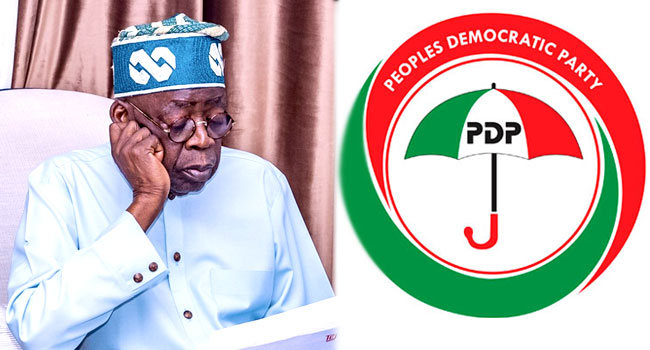Solving NFF’s Ongoing Financial Crisis
Addressing the Nigeria Football Federation’s Persistent Financial Woes
Despite receiving significant funding from FIFA, the Confederation of African Football (CAF), and the federal government, the Nigeria Football Federation (NFF) continues to grapple with financial difficulties. This issue raises concerns about fiscal discipline and the management of resources, particularly in relation to national team expenditures and player selections. To curb these challenges, improved financial oversight and a strategic approach to player selection—favoring home-based talents—are crucial.
The NFF’s Role and Responsibilities
The NFF plays a critical role in Nigerian football, overseeing the development of the sport from grassroots to the professional level. The federation is responsible for nurturing young talents, providing platforms for skill enhancement, and ensuring that Nigerian footballers—both locally and internationally—reach their full potential.
With 11 national teams under its jurisdiction, the NFF is tasked with managing resources efficiently to meet the needs of players, coaches, and stakeholders. However, the federation frequently struggles to fulfill its financial commitments, often resulting in unpaid salaries, match appearance fees, and bonuses. This recurring issue contradicts the substantial financial inflows the NFF receives annually from FIFA, CAF, corporate sponsorships, and government allocations.
Financial Support and Challenges
FIFA’s Forward Development Programme allocated $8 million to the NFF in 2024, part of a broader initiative to support soccer development globally. Additionally, CAF provided $400,000 to each member association, doubling its previous disbursement of $200,000 in 2022. Alongside these international contributions, the NFF receives annual government funding and sponsorship deals, yet it still struggles to maintain financial stability.
For 2024, the NFF budgeted ₦17.6 billion for its activities, covering events such as the remaining 2026 World Cup qualifiers, the Women’s Africa Cup of Nations, the 2025 Africa Cup of Nations in Morocco, and the African Nations Championship (CHAN). Despite this budget, the federation claims it can barely sustain operations, citing high costs associated with organizing matches and logistics.
Costly Player Logistics
A significant portion of the NFF’s expenditure is allocated to transporting and accommodating players for national team duties. For instance, the federation reportedly spends over $1 million per match window. Expenses include flight tickets, hotel accommodations, local transportation, and other logistical needs.
A federation official, speaking anonymously, highlighted that international players must travel in business class to prevent fatigue and cramps. This alone adds a hefty cost to each international call-up. For instance, a business-class return ticket from London to Lagos costs approximately ₦7.4 million (£3,830) per player. When applied to a 23-man squad, this translates to about ₦170 billion for a single game.
These costs are replicated for the Super Falcons, whose players are based in Europe, North America, and China. Given these expenditures, stakeholders question the rationale behind inviting 23 overseas-based players for each game when, in reality, only 17 players are typically utilized.
Advocating for More Home-Based Players
A growing consensus among stakeholders is that the NFF should adopt a more strategic approach by integrating more home-based players into the national team.
Former Super Eagles goalkeeper Segun Oguns criticized the over-reliance on foreign-based players, arguing that the NFF’s unwillingness to invest in the local league has led to its current dependence on players abroad.
“They are afraid of failure and public criticism if home-based players don’t perform,” Oguns said. “But if you don’t give these players opportunities, how will they develop?”
He suggested that home-based players should be given a chance in less competitive matches, such as those against nations with lower-ranked football programs.
Similarly, Bolaji Douglas, a former BCC Lions FC captain, contended that national team invitations often serve as rehabilitation opportunities for players rather than a merit-based selection process. He pointed out that including aging or out-of-form players blocks opportunities for younger, in-form talents.
The Influence of Football Agents and NFF Officials
Another issue raised is the influence of football agents and NFF officials in player selection. Former Bendel Insurance player Loveday Omoruyi alleged that some NFF board members impose certain players on coaches to boost their market value. This practice, he noted, undermines meritocracy and affects the team’s overall performance.
“Some players are included in the squad not because they are the best but because they need visibility for transfer purposes,” Omoruyi explained.
He emphasized that allowing home-based players to gain exposure through international friendlies and smaller matches would reduce the federation’s reliance on costly overseas call-ups.
Balancing Performance Expectations with Financial Prudence
Former Super Eagles Media Officer Toyin Ibitoye acknowledged that while relying on foreign-based players is expensive, the reality is that Nigerian football fans and the NFF prioritize results over cost savings.
“Fans don’t want excuses. They want results,” Ibitoye noted. “If home-based players had been consistently developed and exposed to international matches, they could be trusted in high-stakes games like World Cup qualifiers. However, due to a lack of investment in the local league, coaches prefer foreign-based players who are already accustomed to top-level football.”
He suggested a balanced approach where home-based players are gradually introduced to high-profile matches while ensuring that the team remains competitive.
The Role of CHAN and Local League Development
Onome Obruthe, a former Niger Tornadoes and Bendel Insurance star, proposed that the African Nations Championship (CHAN), which features only home-based players, should be used as a benchmark to assess local talents before integrating them into the Super Eagles.
“If our home-based players perform well in CHAN, it would justify their inclusion in the senior national team,” Obruthe said. “However, if they struggle, it means more work needs to be done to develop the local league.”
Conclusion: A Path Forward for the NFF
Ultimately, the NFF’s goal should be to create a self-sustaining football ecosystem where Nigerian-based players are adequately developed and prepared to compete at the highest level, thereby reducing dependence on costly foreign-based stars. A long-term vision that balances financial prudence with footballing excellence is the only way forward for Nigerian football.
4/3/2025, 12:45:53 PM
views 12028
711







